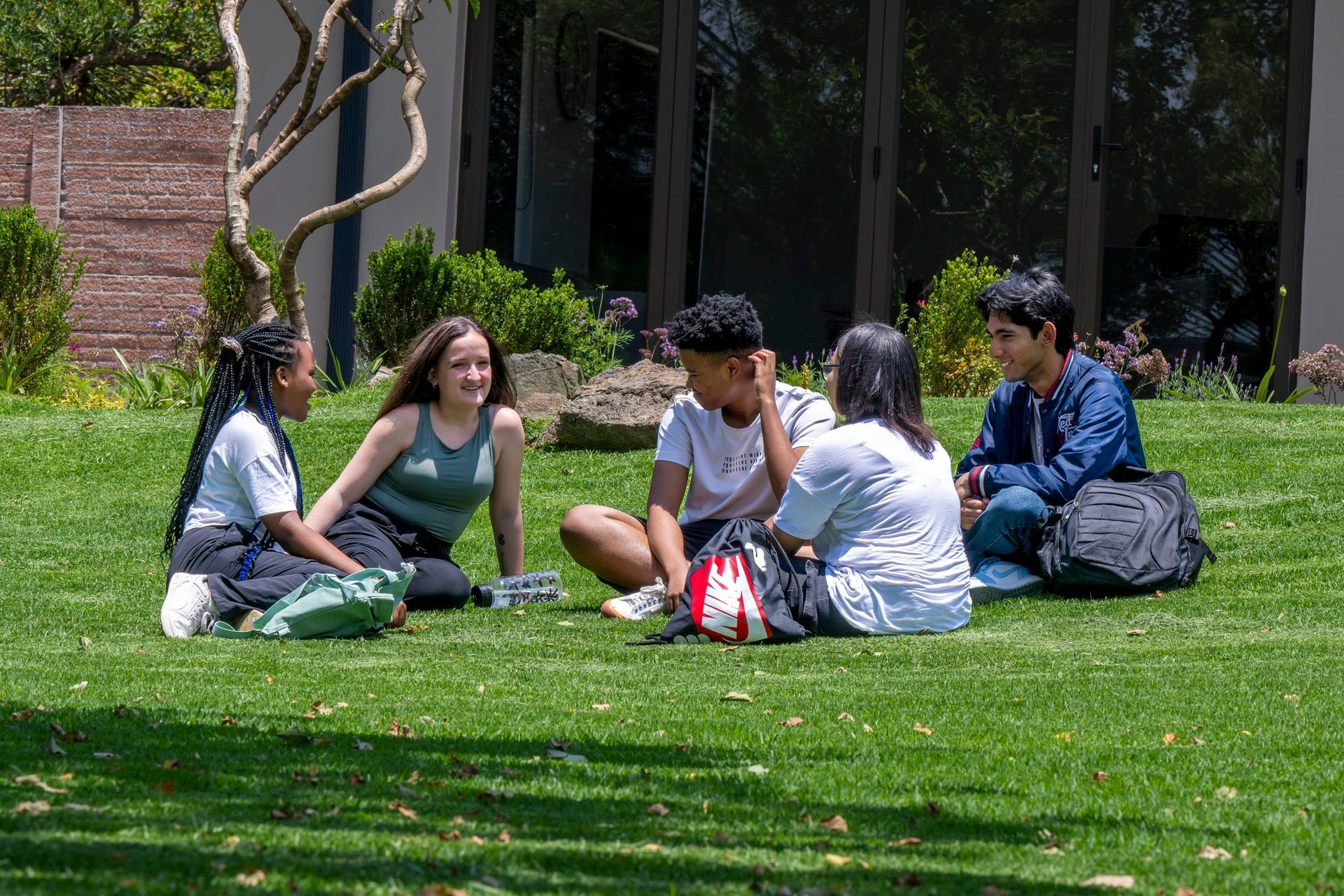Stress is eating my child up…

Stress - something safe to say is impacting us all incrementally now, adult or child… As an Educational Psychologist, I have the privilege to try and support our youth, teachers, parents, and all affected in better navigating our stress management. I must say, working in private practice and schools over the last eight years, that our kids are facing increasing amounts of anxiety. Let’s look at why and what we can do.
We have all heard about teens and the hormonal chaos, often transforming our lovely perky youngsters into the gloomy state of “teen-emo-ness”.
So, what’s with that? As parents, we often question: “I navigated that time without all this teen drama that they face”…Well, here is some food for thought:
First, they are faced with fluctuations in the hormones: Estrogen, Progesterone, and Testosterone. The food we eat, which is all too often genetically modified or pumped with hormones, is surely not helping here either…
Secondly, science says that adolescents’ brains can be more sensitive to the stress hormone (Cortisol) and ironically, the Prefrontal Cortex (that area in the front of the brain that handles planning, organizing, and attention – that part that also helps to redirect or shut off the stress response) is only fully developed in the late ’20s. It is no wonder that adolescence is a stressful time for many youngsters... A time for identity formation in the light of chronic judgment, fitting in, getting through school with increasing demands, concerns about prospects… Not to mention the added present stressors that we are all facing locally and globally. So, now it may make more sense in the light of these stressors, that teens’ anxiety is at its peak.
For the sceptics, let’s look at numbers… According to StatsSA (2020), 1 in 5 of all children and adolescents have some type of mental illness, with 50% of these disorders occurring by the age of 14 years. We have surely seen the struggle our children are facing even more highlighted over the last two years as well. The New York Times fairly states, “The pandemic has changed children. Some can’t shake that feeling of instability”, with some having to take on adult responsibilities and others who already battle with change to live with constant change. What does that do to our children’s socio-emotional trends?
After months of online learning, isolation, pandemic fear, and social upheaval, now we are forced to get on with “normal life”. We are back to school, back to sports, back to seeing people again (well I will revert to this point in a minute) … but what about acknowledging the trauma that happened in the last few months? Lost family members or peers, lost jobs, negativity looming, falling deeply behind in school work…
Despite all of the school chaos, South Africa has also had some unique challenges with riots and unrest, erratic power cuts, and water shortages. To top that all off, the world is now also rocked by the pain and heartache of the Ukrainian war. Wow! Just getting my head around all of this makes me tired for our youth!
In an article in the Atlantic by Twenge, he expresses that our teens are on the brink of a mental-health crisis! Parenting styles continue to change, as do school curricula and culture, but the rise of the smartphone is the biggest culprit. Nomophobia (a.k.a. the fear of not being with one’s phone), cyberbullying, and the “anguish” of not having enough likes on Instagram, are only some of the anxieties that teens are facing. Studies have linked Instagram to depression, body image concerns, self-esteem issues, social anxiety, and other problems.
We must attend to the anxieties that our youth face, as the scary reality is that anxiety can often be the precursor for depression.
Kids NEED to get out, exercise and socialize. BUT SADLY, the number of teens who get together with their friends nearly every day dropped by more than 40 percent from 2000 to 2015. Over the last two years, it is evident that our youth are “out of practice” with things like continuous social contact. During the pandemic, pupils have found it more difficult to open up and share that they are battling (educationally or emotionally). Caroline Miller from Child Mind Institute expressed that, “students with learning challenges reported feeling shame and stigma because they had to formally ask for help, instead of being able to avail themselves of regular after-school support”.
Although some youth have hated online school, Dr. David Anderson, clinical psychologist and Director of School and Community Programs at the Child Mind Institute, expresses that many of our youth are beginning to question the meaning and purpose of going to school more and more. So let’s give them a reason to want to be at school, as educators and parents.
ON A POSITIVE NOTE!! What can we do to support our teenagers?
Because the adolescent brain is developing so rapidly, good habits for coping with teenage stress also can last into adulthood. So let us try to instill good habits… Some nice research is also tapping into the fact that it is not our stress levels that knock us down, but the PERCEPTIONS of stress and not being able to control it, that affects us. So, we will be doing our youth a great service to equip them with tools to feel more in control and manage their stress. How? Here are some insightful tips to help your teenager cope with stress.
- Encourage them to engage in outdoor activities
- Keep communication open between you and them and ACTUALLY listen, acknowledging their feelings
- Keep phone-free moments or events but when they are on their phones, you can encourage certain apps such as Happify, Headspace, Personal Zen, Excel at Life, Mindly or Simple Habit
- You are not the enemy if you switch off the Wi-Fi at certain times of the day (dinner time for example). In fact, eating as a family has been proven to lower academic-related stress in children and teens
- Plan for change and model appropriate behaviour
- Encourage them to talk to a professional – Look out for signs of major anxiety. Has it been persistent, debilitating, unbearable? Then refer to a psychologist
- Work on attainable goals that you can motivate them to attain
- Examine the language you use as a family and the pressures that you may subconsciously be placing on your child
- Help them with keeping a constant routine and to get organized
- Most teens think you don’t “get them” so try… start by letting them know that you are aware of the many pressures they are under and that you have their backs.
It is a lot to digest, but if we help our children to take bite-sized chunks of this anxiety pie, and we help them day by day, it will not be able to swallow them up whole…
Click here to learn more from our teachers and educational experts.
Find out more about Abbotts College and the work we do by visiting our About Us page.
Click here to learn more about how Abbotts College can improve your child’s educational journey.
Feel free to call or email one of our campus administrators here: Enquire Online.










